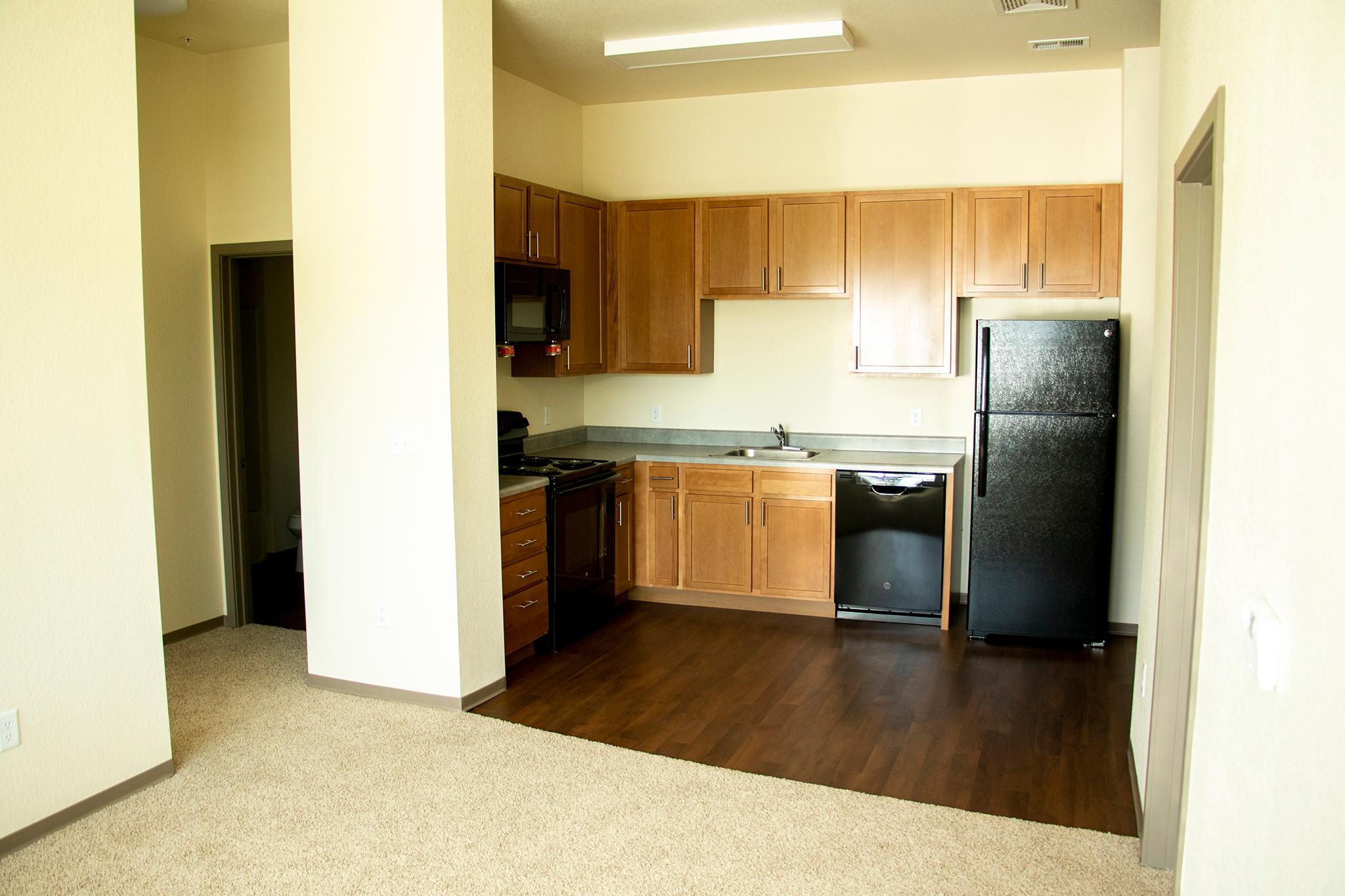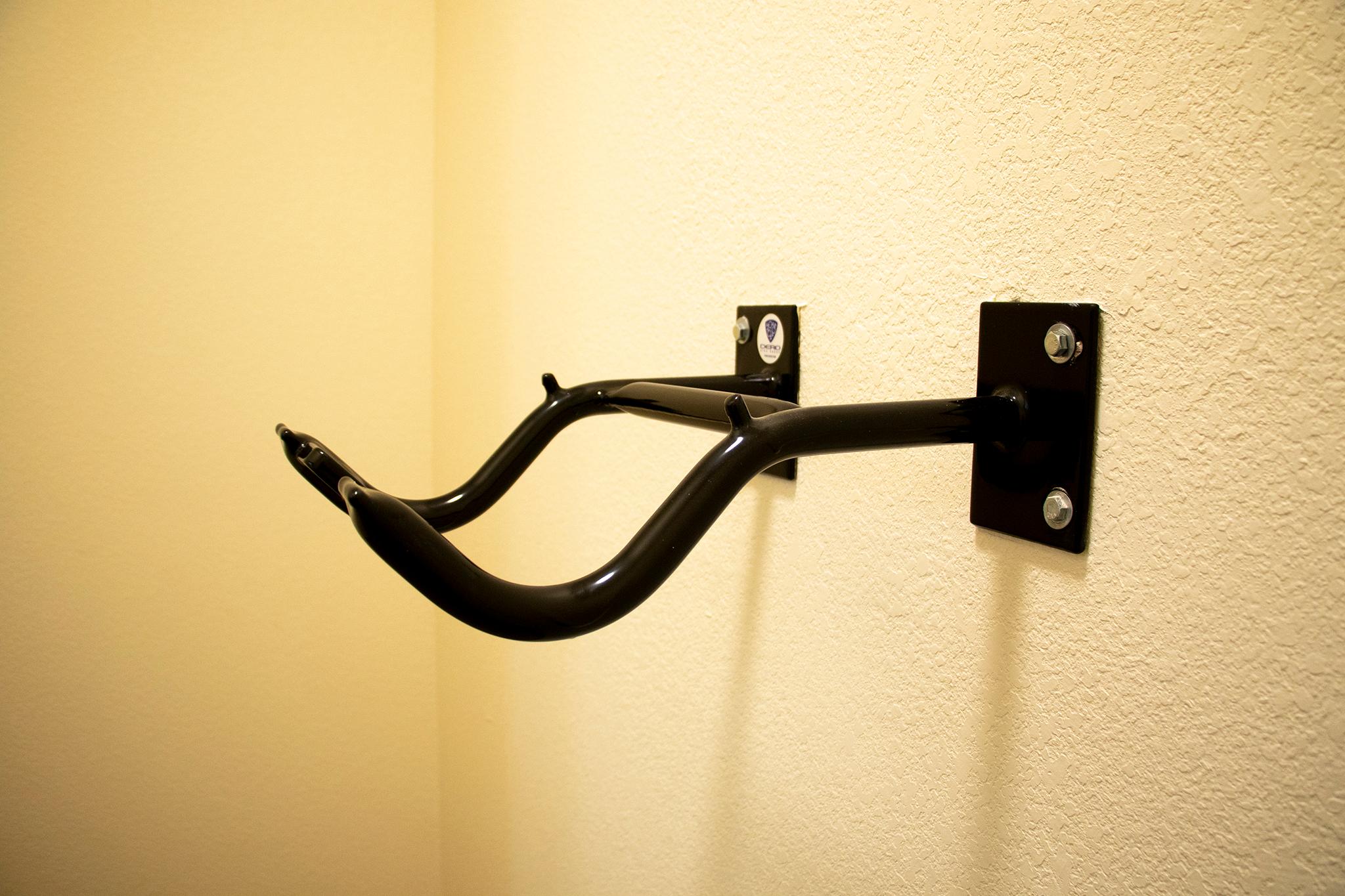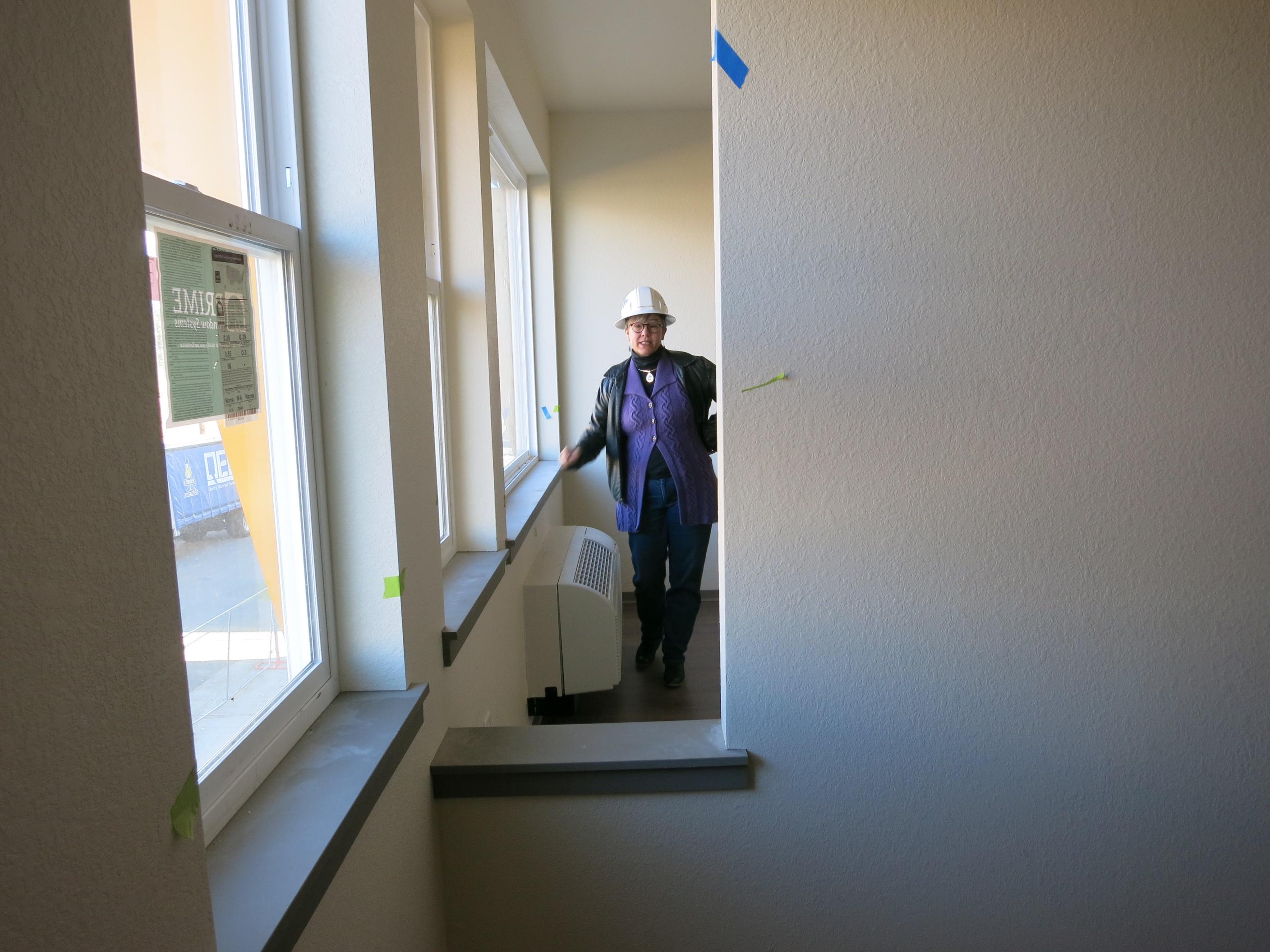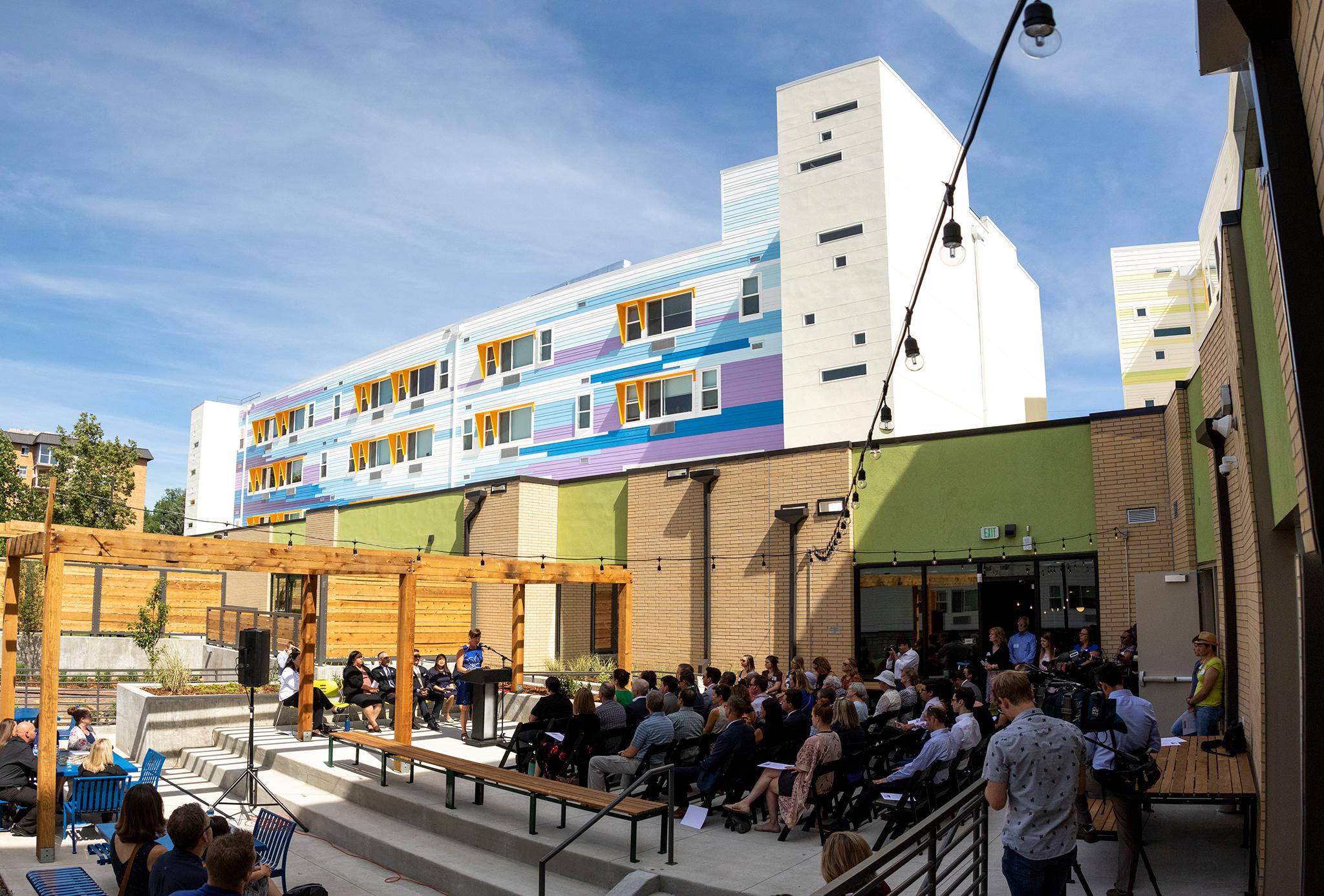As the last piece fell into place, the former head of The Delores Project shelter looked back on the patience and partnerships it took to create something new in housing for Denver.
"We had this crazy idea -- shelter, housing, supportive housing" on one campus, Terrell Curtis said Thursday at the ribbon-cutting ceremony for Arroyo Village, 95 one-, two- and three-bedroom apartments for households earning no more than half the area median income.
Arroyo Village is managed by the affordable housing developer Rocky Mountain Communities and in the same complex as The Delores Project's new 60-bed shelter for women and transgender people and 35 apartments where Delores provides mental health and other services for people coming out of homelessness. The shelter and the supportive housing project, the latter a new step for Delores, opened early this year. All three are independent but in essentially the same Villa Park building, erected around a courtyard and garden on a block near RTD's Knox Court light rail station.
It started more than six years ago when Dick Taft, at the time president and CEO of Rocky Mountain Communities, came to Curtis with a proposal. Taft wanted to tear down an aging Rocky Mountain Communities complex across the alley from the old Delores Project and build new apartments. He suggested that by combining the adjacent lots, Rocky Mountain Communities and Delores would be able to make better use of their land.


Curtis said Thursday that a "regular, normal" project would have taken half the time. But nothing like what she and Taft envisioned had been tried before. Federal tax credits and public and private loans and grants made the project possible. The city of Denver contributed a $1.3 million forgivable loan.
At Thursday's Arroyo ribbon-cutting, City Councilwoman-at-large Robin Kniech said groups like Urban Peak, which serves young people experiencing homelessness, and Senior Support Services are considering following the trail blazed by Curtis and Taft.
"This team that put together this housing ... they created a new path," Kniech said.
Kniech recalled a planning meeting several years ago for what would become the city's Affordable Housing Fund. A question had been raised about whether the fund should also support shelters such as Curtis's. Curtis responded that she cared for people coming in the shelter's front door, but had no housing to which to send them. At the time, Curtis said Thursday, she was already working with Taft on a solution to that problem in the form of the shelter and housing campus now complete in Villa Park.
Between March 20 and April 25, 29 people have moved into the Delores Project's permanent supportive housing perched symbolically and physically between the shelter and Arroyo Village. Of those 29, according to The Delores Project, the four who had jobs when they moved have stayed employed and two have received promotions or raises. Five of those who were unemployed when they arrived have found jobs in the last three months.
Stephanie Miller, who took over The Delores Project from Curtis as the apartments were opening, said some former shelter guests were reconnecting with their families and making the transition to unsubsidized housing.
"Our guests and residents have already experienced success," Miller said. "This works and is already working."
Curtis now helps Gary Community Investments invest in for-profit and philanthropic projects to help low-income families and children in Colorado. The state and the nation have seen a widening gap between earnings for low- and moderate-income residents and the cost of living contribute to the housing crisis and other problems.

Rents at Arroyo Village are kept below a third of the earnings of households making 50 percent of area median income, less than $46,500 for a family of four. Rents at the Delores Project apartments are for those making no more than 30 percent of AMI, less than $19,500 for an individual.
According to Apartment Association of Metro Denver survey results released Thursday, the average area rent during the second quarter of 2019 was $1,520. That would take nearly 40 percent of the earnings of a family making $46,500, and almost all the earnings of a single person earning $19,500.













